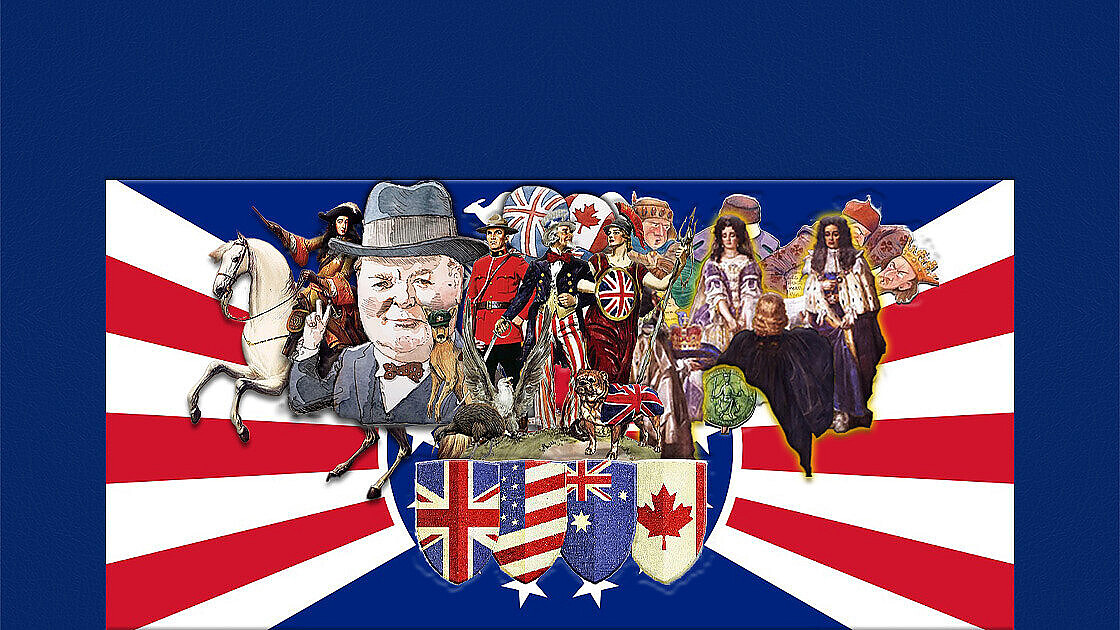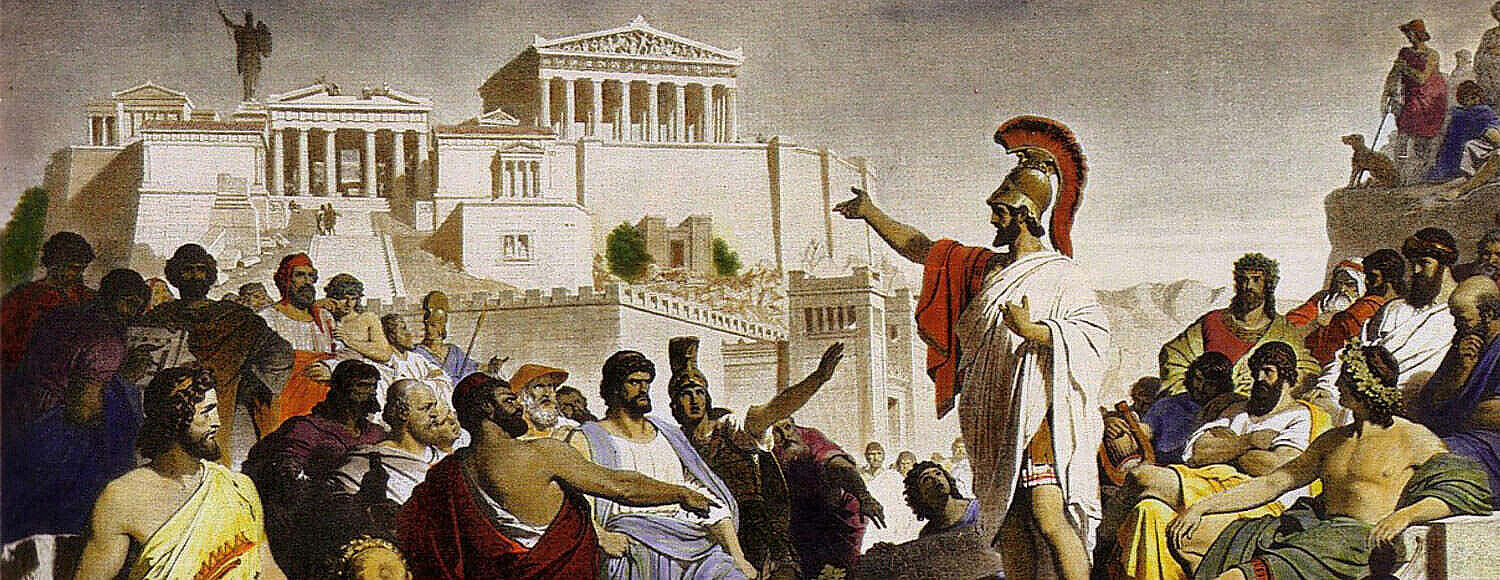According to Andrew Roberts, the English-speaking countries, the Anglosphere, today account for more than one-third of global GDP, despite their combined population being only 7.5% of the world’s population [i].
These countries share a common origin: their constitutional system, which gradually evolved over centuries. The constitution, which emerged in the Glorious Revolution of 1688, is the basis of later developments in all of the English-speaking countries.
It is not that English-speaking people are more intelligent than anyone else. It is that they have long been accustomed to a liberal constitutional system.
Such a constitution provides a stable, limited government where people are more free to make their own decisions. It also ensures that there are effective checks and balances against the abuse of power.
An electorate used to living under such a constitution becomes more capable of making sophisticated judgements in deciding how to vote. They are, above all, suspicious of those who would overthrow the Constitution. So, the electorates of English-speaking countries have typically rejected extremes at either end of the political spectrum.
The electors can of course, be misled, but they are less inclined than others to render heroic status to their leaders or to be swayed by adventurism. Accordingly, it is no coincidence that the communist and fascist parties never attracted any significant support in English-speaking countries, in contradiction to many of the apparently sophisticated European continental countries.
By maintaining a liberal constitution, the result is that the electorate becomes a guardian of that system.
The Birth of the United States of America
When the American Founding Fathers set about designing their constitutional model, they did not come to their task in a vacuum. They were, after all, the thirteen freest countries the world had ever known. They were and saw themselves as heirs to Blackstone’s Fundamental Laws of England and beneficiaries too of the Glorious Revolution.
And James II had tried to remove their representative government[ii]. William and Mary restored it. It was the belief of the Americans that a subsequent English government was denying them their rights. It was not so much the Great Proclamation [iii] that prevented the colonists from taking more Indian land. Nor was it the decision in Somerset’s Case concerning a runaway American slave. There Lord Mansfield had found, probably apocryphally, that “the air of England was too pure for a slave to breathe. Let the black go free.” [iv]
American slave owners knew that this common law ruling would, in time, spread to America. These two irritations were reason enough to try to establish an independent slave-owning state, free to take Indian land.
But these factors alone were not enough. Rather it was the ham-fisted way that the English government unilaterally required the Americans to make what was a quite fair contribution to their defence against the French.
“No taxation without representation” was their remarkably effective slogan. Michael Barone argues that the Glorious Revolution was the inspiration for the resulting War of Independence and the formation of the United States of America. The alternative model was not attractive to the Americans. This was a time when Europe was moving towards absolutism, with the great example being in her dominant power, where the Sun King, Louis XIV, was unchallenged. [v]
Absolutism, apparently modern and efficient, seemed as much the way of the future as the gullible would later think the Soviet Union, Nazi Germany or Mao’s China. [vi] But out of one corner of Europe, as Barone puts it, an alternative had emerged. This was a “constitutional monarchy with limits on government, guaranteed rights, relatively benign religious toleration, and free market global capitalism.” [vii]
This, Barone says, was a long step forward toward the kind of society we take for granted now. It was “the backdrop for the amazing growth, prosperity, and military success of eighteenth and nineteenth-century Britain—and for the American Revolution and the even more amazing growth, prosperity, and military success of the United States.” [viii]
“It changed England from a country in which representative government was threatened to one where it was ingrained, from a nation in which liberties were based on tradition to one in which they were based in part on positive law, from a nation where the place of religion was a matter of continued political dispute and even armed struggle to one where it was settled in a way that generally respected individual choice, from a nation that mostly kept apart from the wars of continental Europe to one that saw its duty as maintaining a balance of power there and around the world, ” he writes. [ix]
It was this English and British example of representative government that inspired the Founding Fathers of the United States and the entire world [x].
It was copied –with minor variations – in the British colonies, many of which would become major nations. This improbable revolution, he argues, did much to shape the world as we know it. Mead writes that many of the values, ideas and attitudes which are thought to be part of “ America’s unique exceptionalism” actually came from Great Britain. [xi]
In particular, he says the ideas of the Glorious Revolution have left “a deep and abiding mark on political culture as well.” As only one example, he points out that the Declaration of Independence itself was closely modelled on the Declaration of Rights. The Glorious Revolution also guaranteed liberties. The “right to bear arms” was very different from the feudal obligation to bear arms. Rather than being an obligation to support the king and his government, it was now “a way for the freeman to protect his property and his liberty.” Here we see the clear origin of the Second Amendment in the U.S. Bill of Rights.
Barone also reminds us of the Third Amendment against the quartering of troops, the Fourth Amendment against unreasonable searches and seizures, the Fifth Amendment against self-incrimination, and the Eighth Amendment against cruel and unusual punishment. [xii] The Glorious Revolution did not establish religious freedom, but neither did the US Bill of Rights. It also prohibited a federally established church; it is only a more recent judicial interpretation which has changed this into mandating the separation of church and state.
And it was not just in the constitution and the law that the Glorious Revolution guided America. It was also in her institutions and even her foreign policy. The Glorious Revolution had given Britain financial institutions similar to those of the United Provinces, which allowed it to be more effective in government, war and trade than the richer France. This preponderance of sophisticated intuitions was continued and developed in America.
The Glorious Revolution and the world
The Glorious Revolution influenced the world in two ways. The successful Anglo-Saxon forms of governance have been copied around the world. With the exception of Switzerland and the United States, and only if we disregard their civil wars, only the Westminster system has been successful in providing limited stable government over extended periods, particularly in periods of stress.
Most of the world’s successful nations have adapted the principles of the Glorious Revolution. But the Glorious Revolution has had another influence, one on the peace and freedom of the world. Barone writes that the revolution brought a theme to British foreign policy, which the United States inherited when she succeeded as the dominant force in the world. This was the concept of the balance of power.
Barone sees a line from the Anglo-Dutch alliance against Louis XIV, through the opposition to Napoleon, to that against Imperial Germany and then Hitler. This continued during the Cold War and today’s struggle against terrorism. [xiii]
Barone wonders, “What kind of world would there be if Britain and then the United States had not gotten into the habit of opposing tyrannical hegemonic powers?”
Whatever the world would have been like, he asserts that Louis XIV, Napoleon, Kaiser Wilhelm, Hitler Stalin and Osama bin Laden would not have been so constrained, and most may not have been defeated. Barone concludes that William III and what he terms the improbable revolution of 1688 were indispensable in bringing into being the world we know today.
He ends with these words from Winston Churchill: “His daring and determination and perseverance should be an inspiration to any who are inclined to weariness and flagging resolve in trying times.” [xiv]
Never before, and not since, has there been such a remarkable achievement in such a short time, the discovery of a model of governance which would at one and the same time assure stable government, checks and balances sufficient to prevent continuing and gross abuse of power, and freedoms which would allow a people to grow in a way which had not been seen before.
This model allowed economic progress and the gradual introduction of democracy in a way that other governance models promised but never delivered. And this was the basis of the American system, which has been the basis of the rise of that union, and of the Westminster system, which has been widely and successfully adopted in many countries.
[i] Andrew Roberts, op.cit., p 637
[ii] Barone,op.cit., p236-237
[iii] The Proclamation of 1763 was made on 7 October 7, 1763, by King George III at the conclusion of the Seven Years’ War. The Proclamation in effect, reserved land west of the Appalachian Mountains to the Indians.
[iv] R. v. Knowles, ex parte Somersett (1772) 20 State Tr 1; (1772) Lofft 1
[v] Barone,op.cit.,p.7
[vi]The most celebrated was by Lincoln Steffens, who, after returning from a visit to Russia in 1921, said, “I have seen the future, and it works.”
[vii] Barone, loc.cit.
[viii] Barone,op.cit.,p. 8[ix] Barone, op.cit., p. 229
[x] Barone, loc.cit.[xi] Mead op.cit., p.47
[xii] Barone, op.cit., p. 232
[xiii] Barone, op.cit., p. 240
[xiv] Barone, op.cit., p. 243




